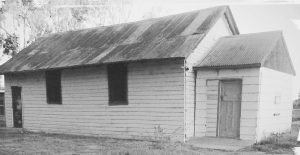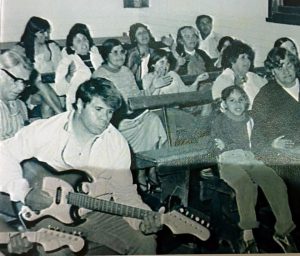This week we have a guest blog from a member of our social media community, Vickie King. She talks about the ‘quadruple strike’ of the four ways drinking alcohol leads to weight gain – and a surprising way she turned it all around to lose weight and quit drinking!
I haven’t consumed a drop of alcohol since 23 September 2017. Sounds like a long time doesn’t it? It is and it isn’t. But what hasn’t changed in all that time, is how much better I feel for it.
You don’t have to have a drinking problem, for drinking to be a problem.
I wasn’t an alcoholic. I didn’t drink every night. I didn’t binge drink on weekends. I didn’t consume vast quantities or have blackouts. But what I did do was have 2–3 glasses of wine on Thursday, Friday, Saturday and Sunday nights. To relax, with a cheese platter, bar snacks, or dinner – all very civilised.
But the problem was I had started to rely on it to relax and unwind from a stressful job. However, I wasn’t happy about how it made me feel, or how it made me look. Inside and outside the booze wasn’t doing me any favours.
I was unmotivated, unfit, overweight, bloated, puffy-faced, and feeling pretty crappy about myself.
Four strikes a charm?
You see booze sets you up for what I call the ‘Quadruple Strike’
- You’re enjoying yourself, but you’re drinking a bunch of calories that have ZERO nutritional value – strike 1
- You’re drinking so you get snacky and end up ordering fatty fries or consuming a whole creamy brie with crackers – strike 2
- You’re riding the cocktail (or beer, or wine) highway till late. The next day you’re dusty … so you skip the gym – strike 3
- Being a little under the weather the next day, you need a big plate of greasy, salty calorific goodness – You’re out!
Swap the bad, for the good.
I decided to draw a line in the sand. I stopped drinking and started going to CrossFit. CrossFit is good for the couch-potato boozer as it has a strong focus on injury prevention, competing only against yourself, and it’s ALL about community. So not only did I get exercise, but I also got to socialise and meet new people without alcohol.
For me, joining a normal gym where you go to anonymous classes or work out alone, wasn’t going to work. If I wasn’t going to the bar, I needed somewhere new to joke around with friends. CrossFit fitted the bill perfectly, so I went twice a week.
Becoming fitter and starting to take care of myself made it a whole lot easier to clean up the food too, because it’s hard to hate a body that you’re looking after. So it was easier to get the motivation to eat well and exercise because my body was responding and giving me encouragement. You start to build a wonderful momentum that carries over into other parts of your life (but that’s another blog post altogether!).
Results that speak to me.
Over a period of eight months I did lose weight – 14 kg to be precise! It just fell off me. I dropped 3 dress sizes and had to buy a whole new wardrobe (sorry not sorry). I felt better. Looked better. Thought better. And I had made a bunch of new healthy friends and found a place to socialise that didn’t require alcohol. It literally changed my life.
If I can do it, you can too. And trust me, it’s so worth it.
Vickie King
If you find you need extra support to help you change, check out Hello Sunday Mornings’ mobile behaviour change program, Daybreak.
Newsletter
Join the 70,000 people who get our latest blog, media articles and personal stories delivered to their inbox every week




